#removals south west london
Text

House Removals North London | Man and Van Star
Efficient house removals in North London! Our skilled team ensures a seamless transition to your new home. From packing to transportation, we handle it all with care. Trust us for a stress-free moving experience!
https://www.manandvanstar.co.uk/
#removals south west london#man with a van central london#man and van south london#man and van cheap london
0 notes
Text
Professional Carpet Cleaning in West London: Steam Cleaning and Pet Stain Removal
Are you searching for carpet cleaning in my area? Look no further! Whether you reside in North West London, South West London, or anywhere in between, finding reliable and professional carpet cleaning services is crucial for maintaining a clean and healthy home. In this guide, we’ll explore the best options for carpet cleaning North West London, carpet cleaning South West London, and carpet cleaning West London.
Carpet cleaning North West London offers a range of services to cater to the diverse needs of residents. From residential to commercial properties, professionals in this area are equipped with the latest technology and techniques to ensure your carpets are spotless. Whether it’s routine cleaning or tackling stubborn stains, you can trust the experts to restore the beauty and hygiene of your carpets.
For those in South West London, finding reliable carpet cleaning services is just as easy. Carpet cleaning South West London specialists understand the unique challenges that homes in this area face, from high foot traffic to pet stains. These professionals offer tailored solutions that include deep cleaning, stain removal, and maintenance plans to keep your carpets looking new.
One of the most effective methods for deep cleaning is carpet steam cleaning services near me. This technique uses high-temperature steam to penetrate carpet fibers, breaking down dirt, allergens, and bacteria. It’s a safe and eco-friendly option that leaves your carpets fresh and sanitized. Whether you’re in West London or beyond, finding local carpet steam cleaning services near me ensures convenience and high-quality results.
Pet owners know the struggle of dealing with stains and odors. Thankfully, Pet Stain Removal London services specialize in addressing these issues. Using specialized cleaning agents and techniques, these professionals can effectively remove pet stains and neutralize odors, leaving your carpets clean and fresh. If you have pets, regular professional cleaning is essential to maintain a healthy home environment.
Choosing the right carpets cleaner is crucial for achieving the best results. Look for professionals with a strong reputation, positive reviews, and experience in the industry. A reliable carpets cleaner will offer a comprehensive range of services, including deep cleaning, stain removal, and routine maintenance, ensuring your carpets remain in top condition.
Benefits of Professional Carpet Cleaning
Improved Indoor Air Quality: Professional cleaning removes dust, allergens, and pollutants, enhancing the air quality in your home.
Extended Carpet Lifespan: Regular cleaning helps maintain the integrity of carpet fibers, prolonging their lifespan.
Stain Removal: Experts have the tools and knowledge to tackle tough stains that household cleaners can’t.
Healthier Home Environment: Removing allergens and bacteria from carpets contributes to a healthier living space.
No matter where you are in West London, professional carpet cleaning services are essential for maintaining a clean and healthy home. From carpet cleaning North West London to carpet cleaning South West London, and carpet steam cleaning services near me, finding the right provider ensures your carpets remain spotless and in excellent condition. Don’t let dirt and stains ruin your carpets—opt for expert Pet Stain Removal London and enjoy a fresher, cleaner home today!
Source Url : https://cleanercarpetslondon.blogspot.com/2024/07/the-key-to-healthier-home-and-business.html
#carpet cleaning in my area#carpet cleaning north west London#carpet cleaning south west london#carpet cleaning west London#carpet steam cleaning services near me#carpets cleaner#Pet Stain Removal London
0 notes
Text
How to Get Rid of a Wasp Nest in Sussex

Sussex, with its picturesque landscapes and serene countryside, is a place many call home. However, amidst its natural beauty, one common nuisance that residents encounter, especially during the warmer months, is the presence of wasp nests. These nests can pose a threat to individuals and pets, making their removal a necessary task. Wasp nest removal in Sussex is a common concern for many homeowners. Fortunately, with the right approach, getting rid of such nests can be done effectively and safely. In this article, we'll explore some strategies to tackle this challenge head-on.
1. Identifying the Wasp Nest:
Before embarking on any removal process, it's crucial to identify the location of the nest of a wasp. Wasps typically build their nests in sheltered areas, such as under eaves, in trees, or even inside wall cavities. They can also be found in garden sheds, attics, or any other secluded spots around your property.
2. Safety Precautions:
Safety should always be the top priority when dealing with wasp nests. Wasps can become aggressive when their nest is disturbed, so it's essential to take precautions to avoid stings. Wear protective clothing such as long sleeves, pants, gloves, and a veil or mask to shield your face. Additionally, make sure to work during the cooler hours of the day when wasps are less active, typically early in the morning or late in the evening.
3. Natural Remedies:
For those who prefer a more eco-friendly approach, there are several natural remedies to consider for wasp nest removal in Sussex. One method is to use a mixture of soap and water sprayed directly onto the nest. The soap suffocates the wasps, causing them to die off. Another option is to hang decoys, such as paper bags or fake wasp nests, near the actual nest, which can deter wasps from building in the area.
4. Commercial Wasp Sprays:
Commercial wasp sprays are widely available and can be effective in eliminating wasp nests. These sprays contain chemicals that quickly kill wasps upon contact. When using these products, be sure to follow the instructions carefully and apply the spray from a safe distance to avoid getting stung. It's also important to note that some sprays may contain harmful ingredients, so consider the potential impact on the environment before use.
5. Professional Pest Control Services:
In cases where the wasp nest is large or difficult to reach, or if you're uncomfortable handling the removal yourself, hiring a professional pest control service is a wise decision. These experts specialising in pest control in Sussex have the knowledge, experience, and equipment needed to safely remove the nest without putting yourself or your property at risk. Furthermore, they can help prevent future infestations.
6. Preventive Measures:
Once the wasp nest has been removed, it's essential to take preventive measures to avoid future infestations. Seal any cracks or openings around your home where wasps can enter, and keep outdoor areas clean and free of food debris. Consider planting insect-repelling plants such as mint, basil, or marigolds around your property to deter wasps from nesting nearby.
Conclusion:
Dealing with a wasp nest in Sussex can indeed be a daunting task, but with the right approach, it can be tackled safely and effectively. Whether you choose to tackle the removal yourself using natural remedies or commercial sprays or prefer to enlist the expertise of professionals like Knockout Pest Control, prioritising safety is paramount. By taking preventive measures to discourage future infestations, you can ensure a wasp-free environment and enjoy peace of mind in your home.
#pest control Sussex#wasp nest removal Sussex#wasp nest removal#pest control services#Eastbourne#Brighton#West Sussex#East Sussex#Hastings#Bexhill#Seaford#Lewes#Surrey#South London#UK
0 notes
Text
Efficient rubbish removal in Kingston | Rubbish Waste
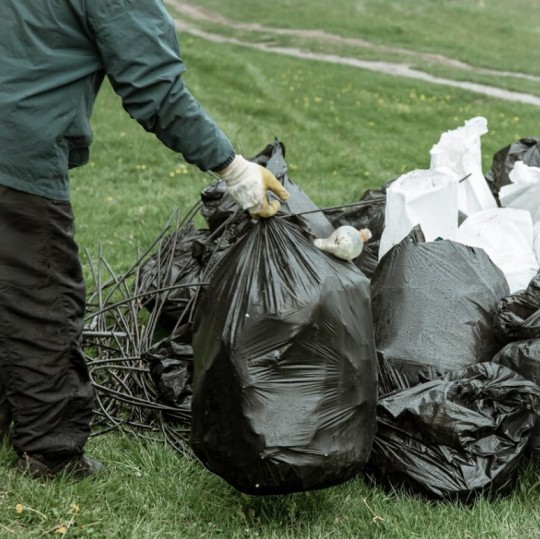
Efficient rubbish removal in Kingston! We handle waste responsibly, offering prompt services for homes and businesses. Clear clutter with ease. Eco-friendly solutions for a cleaner environment. Contact us for hassle-free rubbish removal!
https://www.rubbishwaste.co.uk/
0 notes
Text
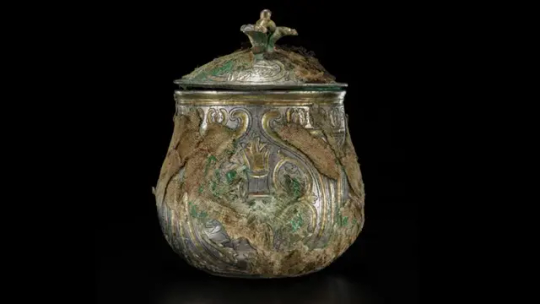
Viking-age Treasure Came to Scotland From West Asia
Ten years on from the discovery of the Viking-age Galloway Hoard in south Scotland, experts have revealed that part of the collection came from West Asia.
The collection - described as one of the most important UK archaeological finds of the century - was found by metal detectorist Derek McLennan in 2014.
A lidded silver vessel was discovered still wrapped in its ancient textiles, which is extremely rare, and meant that the surface of the vessel could at first only be seen through X-ray scans.
Experts say the vessel is originally from what is now central Iran and it was transported halfway around the world more than 1,000 years ago. The vessel was found to contain other treasures, like silk and brooches.
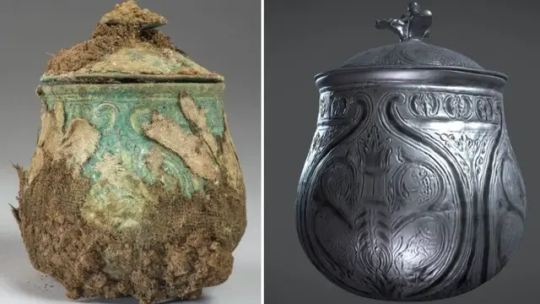

Its textiles have now been partially removed and preserved, and the vessel has been cleaned using lasers which removed any green corrosion and revealed details of the design, including crowns, fire altars, leopards and tigers.
This imagery is unusual in western Europe but it is linked with the iconography of Zoroastrianism, the state religion of the Sasanian Empire which was the last Persian empire before the early Muslim conquests from 632AD.
The hoard - which contained more than 5kg of silver, gold and other materials - was discovered on what is now Church of Scotland land near Balmaghie in the historical county of Kirkcudbrightshire.
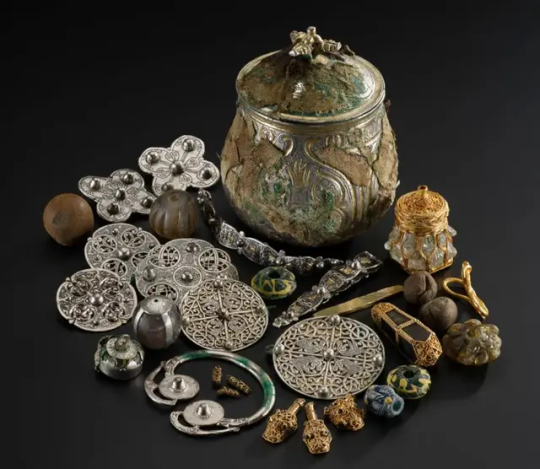

Dr Martin Goldberg from the National Museums Scotland said the vessel was "further evidence of the cosmopolitan make-up of the Galloway Hoard".
He said: "We now know that the Viking-age silver that makes up most of the Hoard was melted down from coins and metalwork from early medieval England.
"Some objects, like the lidded vessel, stood out from the rest and the scientific analysis now confirms this.
"It is incredible to imagine how the vessel made its journey halfway round the known world, from Iran to this distant corner of southwest Scotland.”
The artefact from about 900AD is set to go on public display for the first time next week, on loan to the British Museum’s upcoming Silk Roads exhibition in London.
Other objects from the Galloway Hoard will go on long-term display at the National Museum of Scotland in Edinburgh, while a portion will go on show at Kirkcudbright Galleries.
Dr Sue Brunning, from the British Museum, said: "We're delighted that visitors to Silk Roads will be the first in the world to see this key object from the Galloway Hoard.
"Among its remarkable contents were Scotland's earliest recorded silk, and so it is a highly appropriate inclusion in the exhibition."
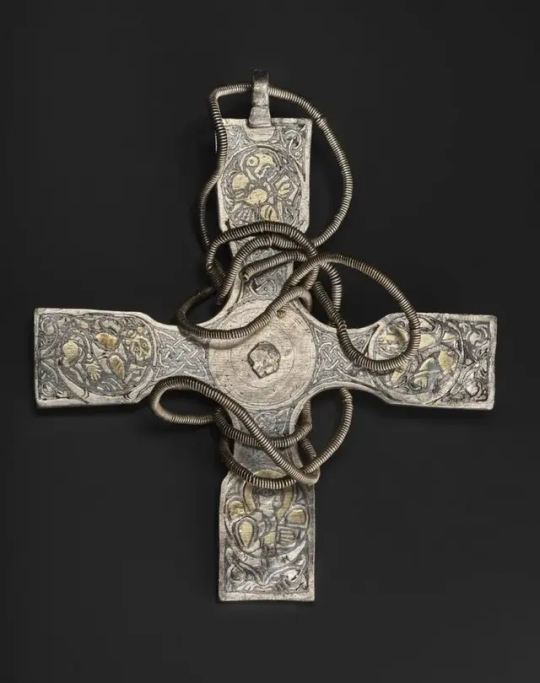
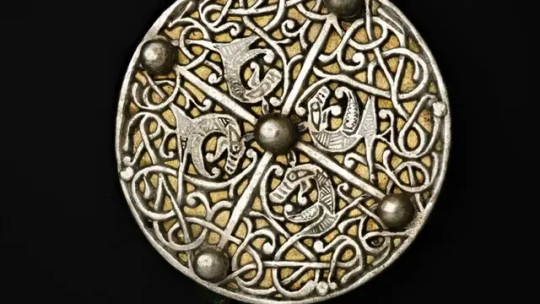
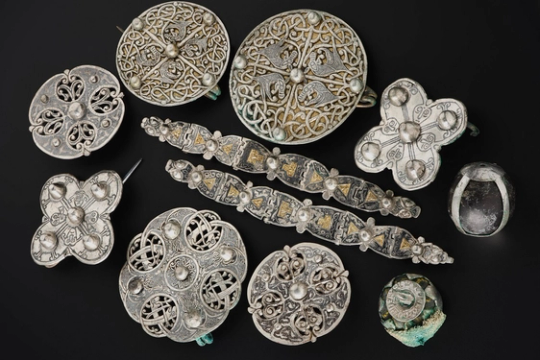
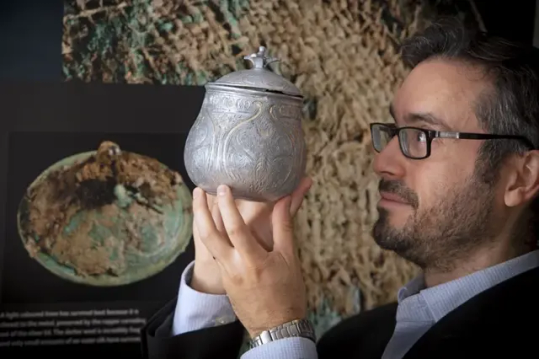
#Viking-age Treasure Came to Scotland From West Asia#Viking-age Galloway Hoard#idded silver vessel#silver#ancient artifacts#archeology#archeolgst#history#history news#ancient history#ancient culture#ancient civilizations#viking age#viking art
72 notes
·
View notes
Text
The Best News of Last Week - June 13, 2023
1. U.S. judge blocks Florida ban on care for trans minors in narrow ruling, says ‘gender identity is real’

A federal judge temporarily blocked portions of a new Florida law that bans transgender minors from receiving puberty blockers, ruling Tuesday that the state has no rational basis for denying patients treatment.
Transgender medical treatment for minors is increasingly under attack in many states and has been subject to restrictions or outright bans. But it has been available in the United States for more than a decade and is endorsed by major medical associations.
2. Eagle Who Thought Rock Was an Egg Finally Gets to Be a Dad

A week after their introduction the cage where the little eaglet was put, was removed so the two could interact more closely. When they were given food, a whole fish for Murphy and bite-sized pieces for his young charge, rather than each eating their separate dish, Murphy took his portion and ripped it up to feed to the baby.
3. Little penguins to reclaim Tasmanian car park as city-based population thrives
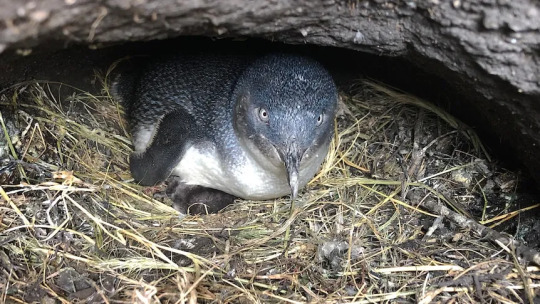
Not far from the centre of Tasmania's fourth largest city, a colony of the world's smallest penguins has been thriving, and their habitat is about to expand into an existing car park.
The bright lights and loud noises of Burnie have not been a deterrent for hundreds of penguins who set up home on the foreshore in the north-west Tasmanian city.
4. Latest population survey yields good news for endangered vaquita porpoise
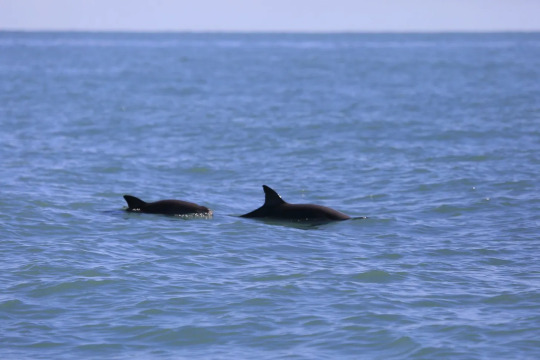
The resilient little vaquita marina appears determined to survive the illegal fishing that has brought it dangerously close to extinction, according to the latest population survey. Despite an estimated annual decline of 45% in 2018, the endangered porpoise appears to be holding steady over the last five years, according to a report published Wednesday by the International Union for Conservation of Nature.
5. 'Extinct' butterfly species reappears in UK
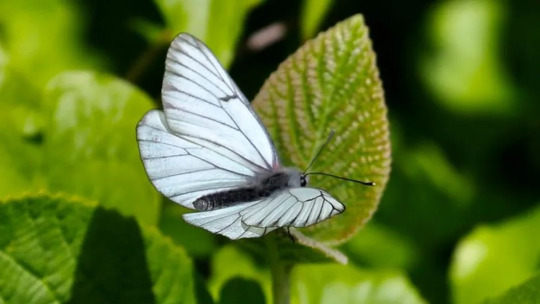
The species, previously described as extinct in Britain for nearly 100 years, has suddenly appeared in countryside on the edge of London. Small numbers of black-veined whites have been spotted flying in fields and hedgerows in south-east London. First listed as a British species during the reign of King Charles II, they officially became extinct in Britain in 1925.
This month they have mysteriously appeared among their favourite habitat: hawthorn and blackthorn trees on the edge of London, where I and other naturalists watched them flitting between hedgerows.
6. Colombian is a hero in Peru: he rescued 25 puppies that were about to die in a fire

During a structural fire that occurred in a residential area of Lima in Peru, a young Colombian became a hero. The Colombian, identified as Sebastián Arias, climbed onto the roof where the puppies were and threw them towards the community, that was waiting for them with sheets and mattresses. "I love them, dogs fascinate me," said the young man.
7. World-first trial for pediatric brain cancer

Researchers in Australia are conducting a world-first clinical trial for children diagnosed with ependymoma, a rare and devastating brain cancer. The trial aims to test a new drug called Deflexifol, which combines chemotherapy drugs 5-FU and leucovorin, offering potentially less toxic and more effective treatment compared to current options.
Ependymoma is the third most common brain tumor in children, and current treatments often lead to relapses, with a high fatality rate for those affected. The trial, led by researcher David Ziegler at the Kids Cancer Centre, has received support from the Kids with Cancer Foundation and the Cancer Institute NSW. The goal is to find a cure for every child diagnosed with ependymoma.
----
That's it for this week :)
This newsletter will always be free. If you liked this post you can support me with a small kofi donation:
BUY ME A COFFEE ❤️
Also don’t forget to reblog.
SUBCRIBE HERE for more good news in your inbox
606 notes
·
View notes
Text
Its funny how people talk about classism and working class rep in RTD1 but casually say they're happy Martha wasn't working class bc 'it would've been bad representation' in the same breath. Yh, there's a lot of damaging hood stereotypes out there but being working class whilst Black doesn't automatically make the character bad. We're not problematic just for existing. If anything, Martha being a working-class Black woman becoming a doctor would've been even more groundbreaking, especially bc the average Black Brit is working-class or below. Even Freema Agyeman herself grew up on a council estate. That could've been really inspirational. The idea that UK discrimination ignores race and only focuses on class is false especially if u look at how the Windrush were treated because they were working class AND Black/of colour (Tory party appealing to white working classes with anti-immigrant rhetoric, Sikh and Muslim workers making their own unions bc they were excluded, West Indians being denied rent etc.). RTD fans love to create a split where Rose's working class rep and Martha's Black rep exist in boxes that don't ever touch but they do. I've seen so many 'but Martha's middle class so I couldn't relate to her' which is funny bc apart from ignoring all the Black fans that couldn't relate to most characters in the show anyway, a lot of us still related to Rose. South and East London are have huge multiracial and multicultural working class communities. We deserve to be represented too. We exist. Working class isn't a synonym for white.
It just says a lot how much RTD and Rose are gassed for destigmatising working class characters but it would've been sooo bad if those characters were Black lol. 'Chav' and 'roadman' have become removed from their OG meanings and are now aesthetics and trends but the actual people living their lives are still living the stigma. You lot love 'chavs' as in cute y2k fits on a conventionally attractive white woman but lord forbid a hypothetical Black person that's unemployed, broke and speaking Black Brit Vernacular getting that doccy who screentime bc that's a bit too ghetto™ apparently. It also says u lot have limited imagination. Attack the Block and The Kitchen proved Black working-class characters can exist in sci-fi and if we're gonna go there... they're doing more for working-class rep rn than RTD1 almost 2 decades ago.
Martha could've walked around in a northface jacket with half a tub of eco styler on her head and she still would've been great idc!
#you lot don't deserve hood martha!#martha jones#rose tyler#rtd era#classism#fandom antiblackness#fandom racism
72 notes
·
View notes
Text
Pumpkin Soup
Word count: 2'200+
Tagging: @bloodboundismylife @choicesfannatalie22 @velvet1753
Pairing: Adrian x MC (Amelia, Amy for short)
Warning: suggestive comment - nothing major

Summer brought many surprises, the unpredictability of the English weather being one of them. Having spent most of the Autumnal months in the familiarity of New York, Adrian managed to obtain a few weeks at the newly-founded London offices of Raines Corp, in the hope that he may oversee the transfer and adaptation of communications between the London and the New York branch. As an additional treat, Amy was able to accompany him, the latter forking out on a holiday let; a beautiful, rustic cottage located in the South-West of England, surrounded by miles upon miles of agriculture and woodland.
Having spent a couple of days in the city, Adrian pulls up onto the cobblestone driveway, dimming the headlights as he parks. As he removes the keys from the ignition, he takes a moment to sit back and admire the view before him; the property is cosy, its walls and foundations made from sandstone, narrow steps leading onto a sturdy patio. He looks up at the roof, the tiling somewhat immaculate for a building of its age. He smiles wistfully, collecting his laptop case from behind the seat before stepping out, quickly noticing the humidity in the air. A rumble of thunder catches him by surprise as he makes his way up the steps, sliding his case into one hand as he unlocks the front door with the other.
“Amelia?” He calls out into the hallway, slowly walking over to the staircase; he stops at the bottom, his elbow leant up against the banister, “sweetheart?”
“I’m in here!”
A soft voice carries through from the other end of the corridor, accompanied by the sound of a pot clanging against the sideboard. He quirks a brow, his intrigue leading him in that same direction.
Adrian enters the kitchen, where he is immediately met by the earthiness of basil, followed closely by a waft of thyme as Amy opens the oven door; she dons a pair of oven mitts, their ends tainted by hues of orange and brown, evidence of their previous endeavours. He watches from the doorway as she removes a ceramic tray from the heat, fumbling around blindly in her attempt to switch it off, the crockery seeming to increase in weight the longer it remains in her grasp. Sensing an impending disaster, Adrian moves to intercept, reaching for the dial; he turns it off, allowing Amy a chance to adjust her hand placement. She places it down on the chopping board, making sure that it is situated away from the edge before removing her gloves, using them to waft the steam in the direction of the window.
“If you do that any longer, we’ll have the entire neighbourhood on our doorstep asking for a piece.”
She wipes her floury hands down her front, “they’ll have to fight me for it.”
“The kitchen smells like a bakery,” he comments, glancing around the room; most of the appliances remain undisturbed by her efforts, but as Adrian pans around to the sink, the evidence is clear to see, doughy residue – now hardened – covering at least three kitchen cupboard handles, the occasional smear appearing in the creases of the sideboards and on the tap. Amy follows his gaze, a rosy flush seeping into her cheeks.
“I got a bit carried away, didn’t I?” She looks down at the floor, failing to conceal her grimace as she steps in a pile of gloop, the action not going unnoticed, “I didn’t realise it was so messy in here.”
“How did you manage to get it on the floor?”
“I don’t know,” she frowns, “it was all in the oven, the last time I checked.”
Adrian walks over to the stove, carefully removing the lid from a saucepan; he leans in, unable to resist sniffing its contents as he gives the amber liquid a stir.
“Is this butternut?”
“And pumpkin,” she moves to stand beside him, reaching for a discarded egg cup; taking her thumb and index finger, she retrieves a pinch of herbs, sprinkling the dried leaves into the soup, “with rosemary and coriander.”
“You’ve gone to a lot of trouble.”
“I wanted to at least try doing something productive today,” she smooths down her skirt, her fingertips fiddling with the hem, “is it too much? I-I’d understand if you wanted to get takeout.”
“Why would I do that?” He questions, leaning back against the countertop, his hands scrambling for purchase, “you’ve worked really hard on this.”
“It’s…actually my third attempt,” she trails off, glancing at the bin, “it looks like a vegetable massacre in there.”
“What happened the first two times?”
“I used coconut milk instead of cream,” she bites her lip, “and the second time, all the vegetables went down to the bottom and they burnt.”
She tilts her head in the direction of the sink, where a large pan lies discarded, blackened lumps of what appears to be the charcoaled remains of vegetable decorating the steel. Adrian cups his mouth, as if trying to refrain from laughter, but his attempt falls flat as a bemused snort escapes him, the sound failing to avoid Amy’s ears.
“I’m sorry, I shouldn’t have laughed at-” he quickly notices Amy’s dejected expression as she turns away from him, playing around with the tap, “hey…no, I…I didn’t mean anything by it.” He moves to stand behind her, smoothing his fingers down her forearms, only coming to a stop when his palms caress her own, “can I show you?”
“Sh-show me what?”
He retrieves the begotten pan, angling it just enough so that it captures the light; using his index finger, he etches an image into the burnt embers.
“It’s a face…see?” He points to each section in turn, “there’s the eyes…that’s his nose and that…is his mouth.”
Amy smiles sadly, gently removing the pan from his hands. She squirts some washing up liquid onto the charred remains, running it under the hot tap for a few seconds.
“I really wasn’t laughing at you, sweetheart. I’m sorry if that’s how you interpreted it.”
“It’s okay,” she sighs despondently, reaching for the scrubbing brush, “I know that deep down, I just…” she shakes her head, “I wanted to impress you.”
“You don’t need to try and impress me,” he speaks softly, reaching for the tie of her apron; he removes the article, only pausing to lift the ribbon from around her neck, his knuckles brushing against the nape of her neck, “I love you as you are.”
“I know you do, but I just wanted to try and achieve something without making a mistake first. Does that make sense?”
“Absolutely,” he nods, placing a tender kiss to the top of her head, “but we’re human. It’s only natural that we make a mistake or two. If we got things perfect all the time, would we ever learn anything?”
She shakes her head, “I guess not.”
He quickly pecks her temple, removing himself from her warmth before trudging over to the cabinet; he reaches in, collecting two soup bowls, his brows furrowed in thought.
“What are you thinking about?” Amy re-gloves her hands, mouthing something quietly to herself before turning the bread upside down onto the chopping board, “you look like you’re somewhere else.”
“Do you think we might benefit from using a pasta dish instead?” He holds one of the soup bowls above his head, “we would have plenty of room for the bread then.”
“It’s up to you,” she looks over at him, her smile brightening as she takes in his appearance; he is crouched down on the floor, his forehead wrinkled in concentration, as if his life depended on the decision that he is about to make, “whatever’s easier, Adrian.”
“I can’t decide,” he pouts, “small bowls would require less washing up.”
“But would allow for more crumbs,” she walks over to him, draping the tea towel over his head, “use the pasta dishes.”
He shakes the material off his head, the ridiculousness of this action eliciting a soft chuckle from Amy; she removes the saucepan from the heat, stirring its contents as Adrian walks back over to her. He places the dishes beside her, moving them closer to the pan as Amy begins to plate the food.
“Would you like some help?”
“You can stand there and look pretty.”
He wraps his arms around her midsection, rocking her gently from side to side as he presses kisses to her neck and shoulder, a mischievous smirk tugging at the corners of his lips.
“I do that every day,” he sighs in contempt, his gaze drifting from Amy’s face to their surroundings, as if memorising ever detail, “I really like it here.”
“So do I,” she opens a drawer, removing the bread knife from its sheath; she cautiously pierces the loaf, slowly withdrawing the blade as it slices cleanly through, “it’s a lovely place.”
“Would you live here? If our vocations were not an issue.”
The knife clatters against the wood; they both look at the window, their eyes meeting one another’s reflection.
“Are you serious?”
“Deadly,” he kisses the space behind her ear, “we both love it here, so why not?”
“But your company…”
“I’ve dedicated decades of my life to that place,” he buries his face in her sweater, closing his eyes as notes of jasmine and cherry blossom reach his nose, “it was my passion project; something that I cherished. Why shouldn’t I step back to pursue another?”
“Another passion project?”
“Mmmmm…” he hums in agreement, “do you agree?”
“What do you want to do?”
“You, preferably,” his eyes glaze over, tendrils of crimson swiftly replacing their usual brown hue; he tilts her face upwards, his knuckle grazing her skin as his hand moves downward, coming to a stop at the hollow of her throat, his voice devoid of volume as he leans in to whisper in her ear.
“You’re my new passion project, Amelia,” he presses his lips to the curve of her jaw, smiling against her skin, “I want to dedicate my time to our future. Marriage…children…we can have whatever we want.”
“Ch-children?”
He nods, “if that is what you want.”
“Is it something that you want?”
“I’ve thought about it,” he replies in turn, “I want to give you the world, if you’ll allow me. I’ll do anything and everything in my power to make that happen.”
He kisses her cheek, “we don’t need to discuss it now. I just wanted you to know that I have thought about what the future holds for us.”
“I appreciate that.”
She pushes herself up onto her toes, meeting his lips with her own before settling back on the balls of her feet; she plates the bread, holding out the dish for Adrian to take. He takes it with a grateful smile, taking a moment to gather cutlery.
“This looks and smells delicious, Ames.”
“I should hope it is,” she picks up a slice of bread, taking a small bite of the crust, “it took me three hours to get the recipe right.”
“Well, you’ve done amazingly as usual,” he beams brightly, guiding her by the small of her back to the dining table. They both take a seat on either side, too engrossed with the food to speak. They share a comfortable silence as they eat their meal, neither one saying so much as a word. It is only when Adrian begins to stack their dishes that he breaks the quiet, unable to hide his bemusement.
“What?”
He shakes his head, “nothing. It’s just nice seeing you so relaxed.”
“I am,” her smile softens, “I’m comfortable and full. There’s no better feeling.”
“Shame about the washing up, though.”
“What washing up?”
Adrian feigns scratching his temple, his eyes darting in the direction of the sink; she follows his gaze…
…to the pile of dirty pots and pans, piled clumsily in the sink.
She groans, her body slumping back in her chair; Adrian walks up behind her, chuckling softly as he places his hands on her shoulders, the pad of his thumbs massaging soothing circles into her skin. He bends over, kissing the top of her head.
“I’ve got this one.”
“A-are you sure?”
“You cooked, so it’s only fair that I wash up, is it not?”
Amy smiles tiredly, nodding.
“Go and get into your pyjamas,” he carries the crockery over to the sink, leaning against the counter, “there’ll be a nice and creamy hot cocoa waiting for you when you get back.”
Amy nods, the pair sharing one last look before Amy disappears out of the room, closing the door quietly behind her. Adrian waits until he hears her footsteps dissipate before turning back around, a loud sigh escaping him as he examines the messy kitchen around him.
“Couldn’t make it easy, could you babe?” He mutters under his breath, his expression softening as he starts to move the pots out of the basin and onto the side, only stopping when he feels something beginning to slip from his pocket. He manages to catch the object in question before it hits the ground, taking a moment to study the box as he undoes the clasp…
…revealing an engagement ring, adored with a handful of little diamonds, an oval-shaped ruby sitting comfortably in the middle.
“One more day,” he exhales slowly, re-situating the box in his breast pocket, “one more day.”
9 notes
·
View notes
Text
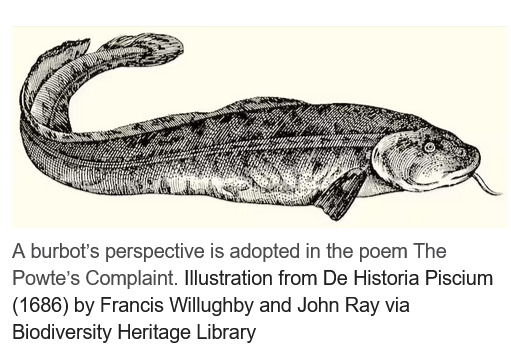
Travel back [...] a few hundred years to before the industrial revolution, and the wildlife of Britain and Ireland looks very different [...]. [B]etween 1529 and 1772 [...] [i]n the early modern period, wolves, beavers and probably some lynxes still survived in regions of Scotland and Ireland. [...] [T]he now globally extinct great auk could still be found on islands in the Outer Hebrides. [...] [A]nd pine martens and “Scottish” wildcats were also found in England and Wales. [...] [B]urbot and sturgeon in both rivers and at sea [...] [and] threatened molluscs like the freshwater pearl mussel and oyster were also far more widespread. [...] [S]everal species of wolf have gone extinct [...]. The capercaillie is [...] [t]oday [...] found only rarely in the north of Scotland, but 250-500 years ago it was recorded in the west of Ireland [...]. [B]y the end of the 18th century, sea eagles were essentially extinct across England and Wales. [...]
The Powte’s Complaint is a protest ballad probably written in 1619 to bewail the drainage of the Fens around Ely and Wisbech in Cambridgeshire.
Attributed in one manuscript to a “Peny” of Wisbech, it is written from the perspective of a burbot, a freshwater species of cod commonly found in the Fens at this time. (This fish is now nationally extinct, but may be soon be reintroduced.)
The ballad summons the “brethren of the water” – probably meaning local people as well as fish and other animals – to fight against the drainage scheme, which sought to create new pasture land:
Come, Brethren of the water, and let us all assemble,
To treat upon this matter, which makes us quake and tremble;
For we shall rue it if ’t be true that Fenns be undertaken,
And where we feed in Fen and Reed, they’ll feed both Beef and Bacon.
According to research by Todd Borlik and Clare Egan, the subject of complaint here was a plan to cut a canal through an area of common land south of Haddenham. This scheme would remove the ability of local people to catch fish, and also to transport their produce and fuel on the water. Protests against the scheme apparently culminated in a demonstration of some 2,000 people who lit bonfires, banged on drums and fired guns all night during a meeting of the Commission of Sewers in 1619.
Within the poem, the alliance of the “brethren of the water” seems to recognise the interdependence of humans and wildlife on each other, and on the environment of the Fens.
A comparable example [...] is the Welsh poem Coed Marchan (Marchan Wood), written around 1580 by Robin Clidro, a wandering poet from the Vale of Clwyd in Denbighshire, known for his humorous rhymes.
Clidro’s poem tells the story of a group of red squirrels who go to London to present a petition against the felling of Marchan Wood for charcoal. As with The Powte’s Complaint, the use of the squirrel as narrator is a conceit, and the poem is really a protest against deforestation on behalf of human interests. But again, the author re-imagines the world from the perspective of animals:
Odious and hard is the law, and painful to little squirrels. They go the whole way to London, with their cry and their matron before them. Then on her oath she said, “All Rhuthyn’s woods are ravaged; my house and barn were taken one dark night, and my store of nuts.” The squirrels all are calling for the trees; they fear the dog.
---
Image, caption, and text by: Lee Raye. “Wildlife wonders of Britain and Ireland before the industrial revolution – my research reveals all the biodiversity we’ve lost.” The Conversation. 17 July 2023. [Bold emphasis and some paragraph breaks/contractions added by me.]
56 notes
·
View notes
Text
Year in review, cathkaesque wrapped
Completed Very Big Very Cool Farmworker Report, which I'm still super pleased about. Everything I proposed was completed.
Went to Morocco for Very Big Very Cool international gathering
Basically completed transition - got all my documents in order, 2 years HRT, laser hair removal in process. I can take or leave srs so I'm basically exactly where I want to be now
Got asthma and celiac diagnoses - my lungs are better, I can finally put on weight, but my reflux issues are unfortunately uncurable (hiatial hernia)
Relatedly, spent most of February scrubbing black mould off my walls
Looking back on it, from mid-Feb/March I had an extremely bad mental breakdown that took up a good chunk of the year to recover from. Combination of all my work being due and none of it being done around March, huge trans panic in the press, trying to get all my documentation in order because the panic in the press scared the hell out of me, serious relationship issues...it was very bad. I had to move back in with my parents for much of the year while I sorted my shit out
Broke up with my bf but we got back together - the time apart sucked so bad and made us both extremely insane and unwell but it forced us to rectify serious ongoing issues in our relationship rather than letting them fester. I feel we've emerged from it stronger and things are going better than they ever have before so that is pretty wonderful. I just wish I could've resolved these things in a less dramatic, less damaging way.
Went on a lovely holiday in South Wales, and also a little weekend break in Kent
Drove 1250 miles in about 2 weeks
Went to my first festival (do not want to do that again, I hate the West)
Relatedly, wrote off my car because I was very tired from driving that much. I don't miss the responsibility of driving or owning a car at all, and I'm saving tonnes of money, but I really miss the ability to go on little trips to obscure places
Went to London a million times for work meetings
Sadly a lot of the international union work I've been involved with over the last few years has collapsed due to infighting in the international organisation. You have a situation where both the workers' union in Spain and one of the employer unions are affiliated to the same international organisation. The employer union is a lot bigger and unsurprisingly this is too unstable a mix to function and they reacted in a way that broke the rural workers' work I have been involved in. I am very pissed off as the result was issues the workers union really needed to be addressed never got looked at and someone who was very, very dedicated to the cause got forced out of their position because of it. Disgusted. I invested so much of myself into that work so I am trying to decouple my political activism from my work life to prevent this from happening again.
At the same time I had similar issues within my own workplace, especially after larger farmers' organisations reacted strongly against my report. I ended up having a big meeting with lots of them where I performed okay despite having a panic attack prior to it. So hopefully that will have been dealt with now.
Managed to have a healthier relationship to weed which is good
I got super into Flames of War and I'm really enjoying that, I love the models and painting my little guys has been so much fun.
But yeah. All in all a super, super hard year, especially the first 8 months of it, but this was due to overdue problems that needed to get solved, and they got solved. I hope things will be easier next year.
22 notes
·
View notes
Text
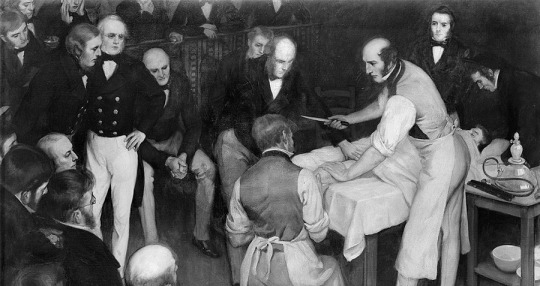

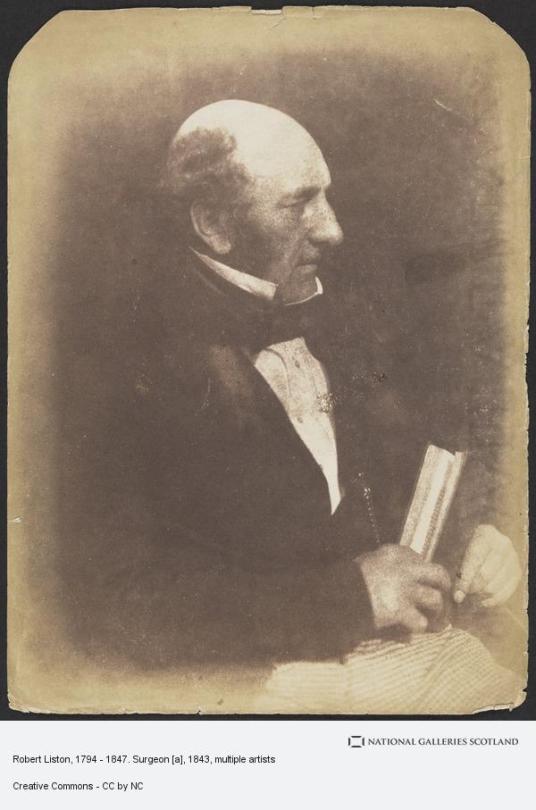
On October 28th 1794 Robert Liston, the first surgeon to use general anaesthetic in Europe, was born in Ecclesmachan, West Lothian.
Liston may be remembered for the anaesthetic but he was also the best surgeon around in the 19th century and quite a remarkable man.
Using an anaesthetic wasn't new, Alcohol is said to have been used in ancient Mesopotamia going back thousands of years, the opium poppy is said to have been cultivated and harvested by the Sumerians in lower Mesopotamia as early as 3400 BC but they were not controlled like they are today. The inventor of the safety lamp Humphry Davy experimented with the gas nitrous oxide in 1799 and found it made him laugh, giving it the term used to this day "laughing gas" Davy wrote about the potential anaesthetic properties of nitrous oxide in relieving pain during surgery, but nobody at that time did not pursue the matter any further.
American physician Crawford W. Long noticed that his friends felt no pain when they injured themselves while staggering around under the influence of diethyl ether., he didn't publish his findings until 1849 though, by then other doctors were using Ether.
Enter Robert Liston, the most skilled surgeon of his generation, so adept that he was described as "the fastest knife in the West End. He could amputate a leg in 21⁄2 minutes" this was at a time when speed was essential to reduce pain and improve the odds of survival of a patient.
The eminent English surgeon Richard Gordon said about Liston that:
"He was six foot two, and operated in a bottle-green coat with wellington boots. He sprung across the blood-stained boards upon his swooning, sweating, strapped-down patient like a duelist, calling, 'Time me gentlemen, time me!' to students craning with pocket watches from the iron-railinged galleries. Everyone swore that the first flash of his knife was followed so swiftly by the rasp of saw on bone that sight and sound seemed simultaneous. To free both hands, he would clasp the bloody knife between his teeth."
His methods were the envy and despair of other surgeons, their dislike of him meant he left Scotland and Gordon goes on to describe this in this paragraph
"an abrupt, abrasive, argumentative man, unfailingly charitable to the poor and tender to the sick (who) was vilely unpopular to his fellow surgeons at the Edinburgh Royal Infirmary. He relished operating successfully in the reeking tenements of the Grassmarket and Lawnmarket on patients they had discharged as hopelessly incurable. They conspired to bar him from the wards, banished him south, where he became professor of surgery at University College Hospital (London) and made a fortune"
Another wee bit of interest is his suspicions regarding Dr Knox on the body of a young woman that Knox had kept in whisky, on show in his dissecting rooms, her name was Mary Paterson and Liston suspected foul play in the manner of her death, he was right, her name was Mary Paterson and she had been "Burked" by the West Port murderers Burke and Hare in April 1828, they were paid £8 for the corpse, which was still warm when they delivered it, Fergusson—one of Knox's assistants—asked where they had obtained the body, as he thought he recognised her. Burke explained that the girl had drunk herself to death, and they had purchased it "from an old woman in the Canongate" The pair went on to sell a further 11 bodies to Knox before they were caught.
Liston on confronting Knox over the poor woman's demise is said to have "knocked Knox down after an altercation in front of his students – Liston assumed some students had slept with her when she was alive, and that they should dissect her body offended his sense of decency. He removed her body for burial." So I think we get a sense of the character of Robert Liston.
Some of Liston's most famous cases documented in a book by the aforementioned Richard Gordon were; removal in 4 minutes of a 45-pound scrotal tumour, whose owner had to carry it round in a wheelbarrow; Amputated the leg in 21⁄2 minutes, but in his enthusiasm the patient's testicles as well; Amputated the leg in under 21⁄2 minutes (the patient died afterwards in the ward from hospital gangrene; they usually did in those pre-Listerian days). He amputated in addition the fingers of his young assistant (who died afterwards in the ward from hospital gangrene). He also slashed through the coat tails of a distinguished surgical spectator, who was so terrified that the knife had pierced his vitals he dropped dead from fright.
That was the only operation in history with a 300 percent mortality!
But it is the first operation in Europe under modern anaesthesia using ether, that Liston is best remembered, on 21 December 1846 at the University College Hospital. His comment at the time: "This Yankee dodge beats mesmerism hollow", referring to the first use of ether by doctors in the US. The first operation using ether as an anaesthetic was by William T. G. Morton on 16 October 1846, in the Massachusetts General Hospital.
The first pic is Robert Liston performing an amputation in front of a crowd of spectators, the second are photoes by Hill & Adamson
18 notes
·
View notes
Text
History
New Year's Day - The most celebrated holiday around the world.
January 1, 1502 - Portuguese explorers landed at Guanabara Bay on the coast of South America and named it Rio de Janeiro (River of January). Rio de Janeiro is currently Brazil's second largest city.
January 1, 1660 - Samuel Pepys began his famous diary in which he chronicled life in London including the Great Plague of 1664-65 and the Great Fire of 1666.
January 1, 1776 - During the American Revolution, George Washington unveiled the Grand Union Flag, the first national flag in America.
January 1, 1801 - Ireland was added to Great Britain by an Act of Union thus creating the United Kingdom of Great Britain and Ireland.
January 1, 1863 - The Emancipation Proclamation by President Abraham Lincoln freed the slaves in the states rebelling against the Union.
January 1, 1877 - Queen Victoria was proclaimed Empress of India.
January 1, 1892 - Ellis Island in New York Harbor opened. Over 20 million new arrivals to America were processed until its closing in 1954.
January 1, 1901 - The Commonwealth of Australia was founded as six former British colonies became six states with Edmund Barton as the first prime minister.
January 1, 1915 - During World War I, the British Battleship Formidable was hit by a torpedo in the English Channel, killing 547 crewmen.
January 1, 1942 - Twenty six countries signed the Declaration of the United Nations, in Washington, D.C., reaffirming their opposition to the Axis powers and confirming that no single nation would make a separate peace.
January 1, 1958 - The EEC (European Economic Community) known as the Common Market was formed by Belgium, France, West Germany, Italy, Luxembourg and The Netherlands in order to remove trade barriers and coordinate trade policies.
January 1, 1959 - Fidel Castro seized power in Cuba after leading a revolution that drove out Dictator Fulgencio Batista. Castro then established a Communist dictatorship.
January 1, 1973 - Britain, Ireland and Denmark became members of the Common Market (EEC).
January 1, 1975 - During the Watergate scandal, former top aides to President Nixon including former Attorney General John Mitchell, Domestic Affairs Advisor John Ehrlichman and Chief of Staff H.R. Haldeman, were found guilty of obstruction of justice.
January 1, 1979 - China and the U.S. established diplomatic relations, 30 years after the foundation of the People's Republic.
January 1, 1993 - Czechoslovakia broke into separate Czech and Slovak republics.
January 1, 1999 - Eleven European nations began using a new single European currency, the Euro, for electronic financial and business transactions. Participating countries included; Austria, Belgium, Finland, France, Germany, Ireland, Italy, Luxembourg, Netherlands, Portugal and Spain.
Birthday - American Patriot Paul Revere (1735-1818) was born in Boston, Massachusetts. Best known for his ride on the night of April 18, 1775, warning Americans of British plans to raid Lexington and Concord.
Birthday - Betsy Ross (1752-1836) was born in Philadelphia, Pennsylvania. She was a seamstress credited with helping to originate and sew the Stars and Stripes flag of America in 1776.
9 notes
·
View notes
Text

Experience the joy of walking on fresh, clean carpets with Cleanercarpetslondon.com. Our professional carpet cleaners will leave your home feeling like new.
carpets cleaner
#carpets cleaner#Pet Stain Removal London#carpet steam cleaning services near me#carpet cleaning south west london
0 notes
Text
Safeguarding Homes and Communities in Sussex and West Sussex by Timely Wasp Nest Removal
In this article, we delve into the significance of timely wasp nest removal in Sussex and how it contributes to the well-being of both residents and the environment.
The Buzzing Menace:
Wasp nests are more than just a summertime nuisance; they can pose a serious threat to public safety, particularly in densely populated areas like Sussex. The presence of wasp nests near homes, schools, and public spaces can result in an uptick in incidents of stings, leading to allergic reactions and, in severe cases, hospitalisation.
The territorial nature of wasps makes them highly aggressive when their nests are threatened, underscoring the importance of addressing these issues promptly.
Public Health Concerns:
Beyond the physical harm caused by wasp stings, these buzzing insects contribute to public health concerns in various ways. The residue from wasp nests, including droppings and decomposed insects, can become a breeding ground for bacteria and allergens, posing additional risks to the community.
Timely removal of these nests is crucial not only to prevent the immediate dangers of stings but also to safeguard the overall health of Sussex residents.
Environmental Impact:
Sussex's rich agricultural areas, particularly in West Sussex, face unique challenges when wasp nests interfere with crop production. The impact extends beyond the agricultural sector, affecting the delicate balance of local ecosystems.
Large wasp colonies can disrupt the population dynamics of other insects, which, in turn, influences the birds and animals that depend on them for sustenance. Recognizing the ecological ramifications of wasp nests underscores the need for proactive measures.
The Importance of Professional Pest Control:
Attempting to remove a wasp nest without professional assistance can be hazardous and is not recommended. DIY attempts often lead to agitated wasps, resulting in an increased risk of stings and potential harm.
Professionalpest control services in West Sussex are not only equipped with the knowledge and experience required for safe removal but also possess the protective gear necessary to mitigate risks effectively.
Environmental Responsibility:
Sussex residents, who hold a deep appreciation for the natural beauty of their surroundings, must prioritise responsible pest control practices. Reputable pest control services in the region employ environmentally friendly methods, ensuring that the removal of wasp nests does not inadvertently harm the local ecosystem or wildlife.
This commitment to sustainability aligns with the values of the community, fostering a balance between pest control necessities and environmental stewardship.
Conclusion:
In Sussex, where the allure of nature meets the warmth of close-knit communities, the timely removal of wasp nests emerges as a proactive and indispensable measure. Far beyond simply mitigating immediate threats, this practice is a commitment to public health, environmental preservation, and the overall harmony of Sussex.
By recognizing the importance of professional pest control services and acting promptly, residents can relish the beauty of Sussex without the disruptive buzzing menace of wasp nests. Pest control in Sussex is not just a service; it is a shared responsibility to ensure the well-being of the people and the environment they call home.
#pest control Sussex#pest control#pest control West Sussex#wasp nest removal Sussex#Eastbourne#Brighton#West Sussex#East Sussex#Hastings#Bexhill#Seaford#Lewes#Surrey#South London#United Kingdom
0 notes
Text

Wimbledon school crash: Girl, 8, dies after car hits building and several injured
An eight-year-old girl has died after a car crashed into a primary school in Wimbledon, south-west London. Paramedics treated 16 people for injuries after the Land Rover crashed into The Study Preparatory School in Camp Road at about 10:00 BST. A number of other people, including a 7-month-old girl, were also taken to the hospital but were not in critical condition, police said.
On Thursday, London's ambulance service said 16 people, including the girl who died, were treated at the scene for injuries. Ten of them were later hospitalized.
The driver, a woman in her 40s, has been arrested on suspicion of causing death by dangerous driving. Police say they have now removed the Land Rover from the crash site as part of their investigation.
The school is for girls aged 4 to 11 and located near Wimbledon Common, with the local MP saying pupils had been gathered for an end-of-year celebration party in the garden.
A major incident was declared, but the Met said it was not being treated as terror-related.
The stationary Land Rover could be seen on school grounds, surrounded by plastic sheets and cordons.
London Ambulance Service took 10 people to hospital, with St George's Hospital, in Tooting, "receiving a number of patients who are being cared for by our specialist clinical teams". About 20 ambulances were parked on Camp Road, along with two fire and rescue vehicles. Firefighters were seen carrying various cutting equipment away from the scene.
8 notes
·
View notes
Text
The ringleader of an extreme body modifications group who was known as the “eunuch maker” claimed £18,500 in disability benefits after willingly having his leg amputated, a court heard.
Marius Gustavson, 46, was the mastermind of a “lucrative” and “widespread” extreme body modifications enterprise in which procedures – including the removal of genitals – were filmed and streamed on his pay-per-view website, the Old Bailey was told.
The court heard that Byrnes, from Tottenham, north London, was filmed cutting off Gustavson’s penis with a kitchen knife and saying: “Well that’s one off the bucket list.”
The court heard that Gustavson advertised for someone to assist him in becoming a eunuch on a gay dating app before offering Byrnes, an escort, £500 for carrying out the procedure.
Arnold, a nurse from South Kensington, west London, admitted the partial removal of Gustavson’s nipple in summer 2019. He also admitted to stealing anaesthetic between 2016 and 2022 from the Chelsea and Westminster hospital where he worked and also possessing extreme pornography.
The court heard that Arnold gave Gustavson medical advice for procedures and shared a manual with him called “Penile Disassembly Manual: anatomical surgical steps”, which he said was “porn to me”.
Emberi történet / minden angol bűnöző rovat
4 notes
·
View notes